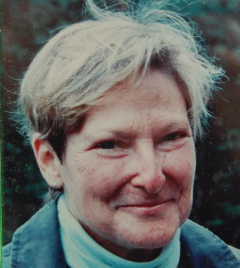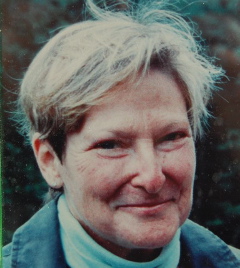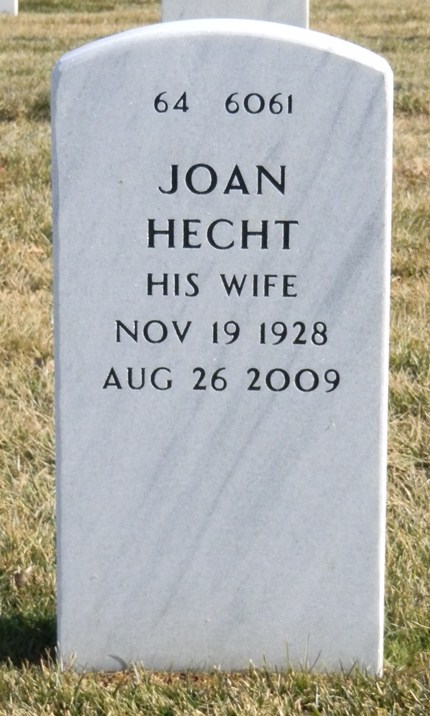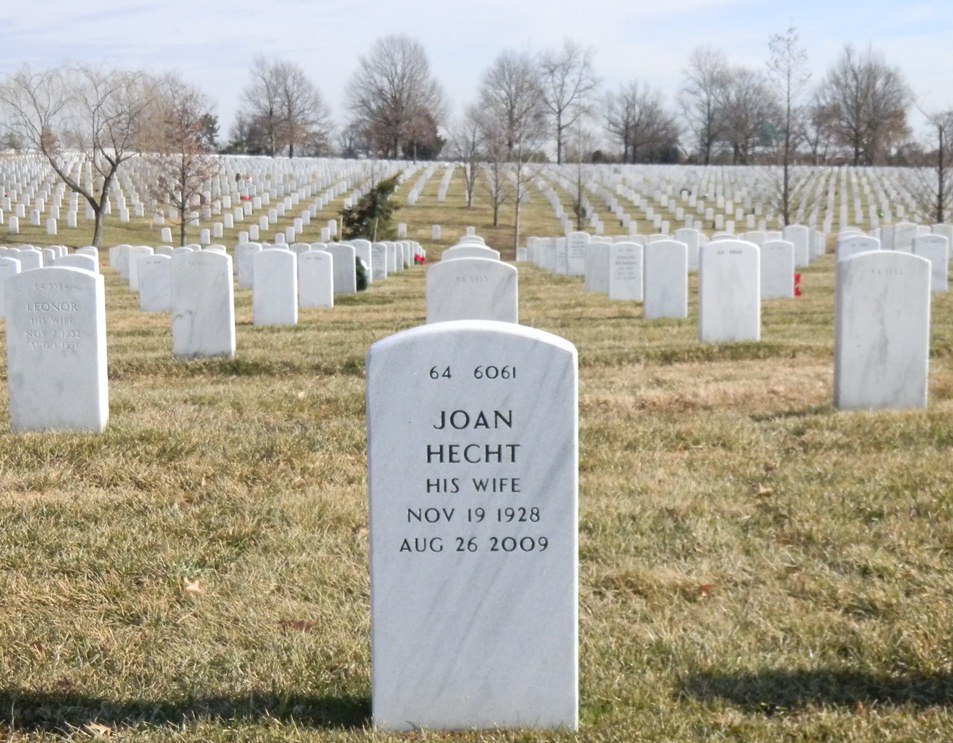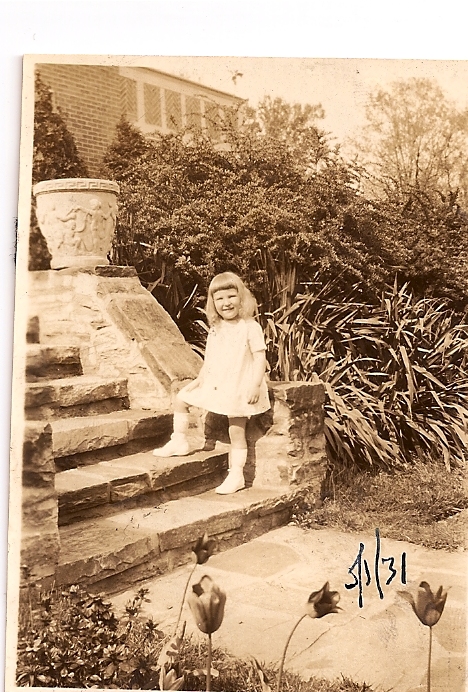Joan Hecht Lorber, who made newspaper headlines in 1939 when she survived the sinking of a torpedoed passenger ship in the early days of World War II, died of Parkinson's disease Aug. 26 at her Boca Raton, Fla., home. She was 80 and had lived in Pikesville until the 1950s.
As a 9-year-old, Joan Hecht was returning to Baltimore aboard the liner SS Athenia when it was sunk by a German U-boat after its captain mistook the vessel for an armed merchant cruiser, not the Donaldson American Line passenger ship it was. German authorities immediately suppressed the facts surrounding the torpedoing. A more accurate account did not emerge until the Nuremberg war trials.
Joan Hecht, then a Park School fifth-grade student and the great-granddaughter of Baltimore department store founder Samuel Hecht, had been visiting Scotland with her nurse-governess, Govans resident Jean McVittie. After Adolph Hitler's forces invaded Poland in September 1939, the two booked passage on the liner and left about two weeks earlier than they had planned.
On Sept. 3, 1939, the German submarine fired on the Athenia, which was crowded with passengers fleeing the British Isles, including 311 American citizens, several of whom were from Baltimore and Maryland.
Her mother, Ruth Gerstley Hecht, collapsed when she heard a radio news flash about the Athenia's sinking as she was playing bridge at the Mount Washington home of City Councilman Jerome Sloman, according to a Baltimore Sun article at the time.
"I was in my stateroom when I heard the explosion; I knew the damn Huns - but Daddy mustn't know I said that - had gotten us," the little girl told an Associated Press reporter on Sept. 27, when she finally reached the U.S.
She described descending a ladder toward a lifeboat. She lost her footing when the ladder broke. She made it to a lifeboat intended for 50 persons. She said it actually carried 75 - mainly women and children. Two men and three women rowed. The rudder broke, and they drifted for 11 hours. At dawn, the HMS Escort picked them out of the Atlantic and took them back to Scotland.
Nearly three weeks later, she and her nurse boarded the steamship Orizaba, crossed the Atlantic safely and landed at New York. "Thousands stood on the shore in wild salute to her coming," an Associated Press article said.
She was met in New York by her father, Julien Hecht, who owned the Triangle Sign Co., which installed the landmark Domino Sugars neon sign at the harbor. An Associated Press photographer caught her kissing him as she arrived. The photo was widely published.
Of the 1,100 passengers and crew on the Athenia, 118 perished, many in a lifeboat that was destroyed accidentally by the propeller of a rescue vessel. Mrs. Lorber later said she narrowly missed being assigned to that doomed lifeboat.
After graduating from the Park School, she earned a home economics degree from Boston's Garland Junior College.
She married M. Philip Lorber, a naval commander and a lawyer, in 1952 and lived for many years in Germany and in Westport, Conn., where she was a volunteer at the Westport Senior Center and was active at Temple Israel. She also employed the woman who traveled with her on the Athenia, Jean McVittie, to assist in raising her own son and daughter.
"Joan spent her life maintaining a wonderful, loving home for her husband, two children and countless pets," said her son, Bryan I. Lorber of Barrington, R.I. "She never looked back at her experience during the war."
"For over 15 years, she fought a courageous battle against Parkinson's disease while maintaining a sense of humor, dignity and kindness toward all," her son said.
In addition to her son, survivors include her husband of 57 years; a daughter, Beth Lorber of Port Townsend, Wash.; a brother, Louis Hecht of Pikesville; and three grandchildren.
Jacques Kelley, "Baltimore Sun"
My memorial eulogy read at St. Andrews Estates South, Boca Raton, FL
"Ring the bells that still can ring
Forget your perfect offering
There is a crack in everything
That's how the light gets in."
From the song "Anthem" by Leonard Cohen.
My Mom was a living gem. How appropriate that she is now the stuff of stars.
A woman of kindness, generosity and unconditional love, she never had a mean thing to say about anyone. Whether sending me care packages while away at school, teaching me to cook and do laundry, or rescuing me when I locked the keys in my car while out on a late night date, I could always count on her for support and affection. No matter what transpired during my upbringing, and believe you me, a lot transpired, she was never judgmental even though there were countless opportunities where that would have been completely justified.
In reality, I lost my Mom quite a few years ago after Parkinson's stole from her the ability to enjoy life on her own terms. Always physically active and intellectually curious, I am eternally grateful that I had the opportunity to travel with her, just mother and son, in the years before she could no longer do so.
In 1988 we spent a week whale-watching aboard a commercial fishing boat exploring the islands and lagoons along the coast of Baja, Mexico while sharing a living space that can only be described, euphemistically, as intimate and cozy. Only one of us could dress or undress at a time while the other lay in his or her bunk. And that physical act could only be accomplished when the sink was in the folded upright position! To some, this would present a hardship. But not my Mom who saw this trip as a fun and exciting adventure.
During our 1993 self designed trip to Scotland and the Orkney Islands, Mom was already showing the tell-tale signs of Parkinson's. Despite this fact, she didn't allow tremors and the occasional unsteady gait to keep her from visiting obscure, distant sites that most people would never imagine. We flew to the island of North Ronaldsay, known exclusively for an ancient breed of sheep that live on the beach feeding primarily on seaweed. Access to this island required flying on a very small prop-plane which, prior to landing, made two passes over the grass landing strip in order to clear grazing livestock out of the way. We rented two old, rusted bicycles from a local farmer and set out to explore the island. At some point Mom fell, resulting in a nasty patch of "road rash" on a arm and leg. I helped her up, cleaned up the wounds as best I could and we continued on our way. In classic fashion, Mom was not about to let a little fall stop her from doing and seeing what she came to see and do!
We also flew to the island of Stronsay where we searched for and located the last remaining lifeboat from the S.S. Athenia. We were the only two passengers to disembark the plane and found ourselves on the edge of a pasture with no one around, the plane having taken off as soon as the pilot determined we were a safe distance from his aircraft. It was windy and a light, misty rain was falling. Mom looked at me and said, without hesitation, "Well, let's get going!" And so began our two mile, one hour walk, into the town of Whitehall. It was a narrow, winding, country road with pasture on both sides and wildflowers blooming along the edge. Cows and sheep would stop their grazing, lift their heads and watch us as we passed by. Soon the rain stopped and the clouds cleared enough to display sweeping views of the North Sea and the lush green countryside. Occasionally a rabbit would dart out in front of us, run along the road for a few hundred feet and then vanish into the undergrowth. During this walk we saw only one car and the only sounds were wind, birds and the occasional bellow of a cow.
Memories such as these I will hold dear for the rest of my life.
I could share with you many other stories but Mom was also a modest person who appreciated brevity so those stories must wait for another time. I think you get the point, though, Joan Hecht Lorber was an awesome Mom.
On the subject of death, Kahlil Gibran in his epic work, "The Profit", wrote:
"For what is it to die but to stand naked in the wind and to melt into the sun?
And what is it to cease breathing, but to free the breath from its restless tides, that it may rise and expand unencumbered?
Only when you drink from the river of silence shall you indeed sing.
And when you have reached the mountain top, then shall you begin to climb.
And when the earth shall claim your limbs, then shall you truly dance."
Thank you for coming today. I know that Mom would be deeply flattered.
Joan Hecht Lorber, who made newspaper headlines in 1939 when she survived the sinking of a torpedoed passenger ship in the early days of World War II, died of Parkinson's disease Aug. 26 at her Boca Raton, Fla., home. She was 80 and had lived in Pikesville until the 1950s.
As a 9-year-old, Joan Hecht was returning to Baltimore aboard the liner SS Athenia when it was sunk by a German U-boat after its captain mistook the vessel for an armed merchant cruiser, not the Donaldson American Line passenger ship it was. German authorities immediately suppressed the facts surrounding the torpedoing. A more accurate account did not emerge until the Nuremberg war trials.
Joan Hecht, then a Park School fifth-grade student and the great-granddaughter of Baltimore department store founder Samuel Hecht, had been visiting Scotland with her nurse-governess, Govans resident Jean McVittie. After Adolph Hitler's forces invaded Poland in September 1939, the two booked passage on the liner and left about two weeks earlier than they had planned.
On Sept. 3, 1939, the German submarine fired on the Athenia, which was crowded with passengers fleeing the British Isles, including 311 American citizens, several of whom were from Baltimore and Maryland.
Her mother, Ruth Gerstley Hecht, collapsed when she heard a radio news flash about the Athenia's sinking as she was playing bridge at the Mount Washington home of City Councilman Jerome Sloman, according to a Baltimore Sun article at the time.
"I was in my stateroom when I heard the explosion; I knew the damn Huns - but Daddy mustn't know I said that - had gotten us," the little girl told an Associated Press reporter on Sept. 27, when she finally reached the U.S.
She described descending a ladder toward a lifeboat. She lost her footing when the ladder broke. She made it to a lifeboat intended for 50 persons. She said it actually carried 75 - mainly women and children. Two men and three women rowed. The rudder broke, and they drifted for 11 hours. At dawn, the HMS Escort picked them out of the Atlantic and took them back to Scotland.
Nearly three weeks later, she and her nurse boarded the steamship Orizaba, crossed the Atlantic safely and landed at New York. "Thousands stood on the shore in wild salute to her coming," an Associated Press article said.
She was met in New York by her father, Julien Hecht, who owned the Triangle Sign Co., which installed the landmark Domino Sugars neon sign at the harbor. An Associated Press photographer caught her kissing him as she arrived. The photo was widely published.
Of the 1,100 passengers and crew on the Athenia, 118 perished, many in a lifeboat that was destroyed accidentally by the propeller of a rescue vessel. Mrs. Lorber later said she narrowly missed being assigned to that doomed lifeboat.
After graduating from the Park School, she earned a home economics degree from Boston's Garland Junior College.
She married M. Philip Lorber, a naval commander and a lawyer, in 1952 and lived for many years in Germany and in Westport, Conn., where she was a volunteer at the Westport Senior Center and was active at Temple Israel. She also employed the woman who traveled with her on the Athenia, Jean McVittie, to assist in raising her own son and daughter.
"Joan spent her life maintaining a wonderful, loving home for her husband, two children and countless pets," said her son, Bryan I. Lorber of Barrington, R.I. "She never looked back at her experience during the war."
"For over 15 years, she fought a courageous battle against Parkinson's disease while maintaining a sense of humor, dignity and kindness toward all," her son said.
In addition to her son, survivors include her husband of 57 years; a daughter, Beth Lorber of Port Townsend, Wash.; a brother, Louis Hecht of Pikesville; and three grandchildren.
Jacques Kelley, "Baltimore Sun"
My memorial eulogy read at St. Andrews Estates South, Boca Raton, FL
"Ring the bells that still can ring
Forget your perfect offering
There is a crack in everything
That's how the light gets in."
From the song "Anthem" by Leonard Cohen.
My Mom was a living gem. How appropriate that she is now the stuff of stars.
A woman of kindness, generosity and unconditional love, she never had a mean thing to say about anyone. Whether sending me care packages while away at school, teaching me to cook and do laundry, or rescuing me when I locked the keys in my car while out on a late night date, I could always count on her for support and affection. No matter what transpired during my upbringing, and believe you me, a lot transpired, she was never judgmental even though there were countless opportunities where that would have been completely justified.
In reality, I lost my Mom quite a few years ago after Parkinson's stole from her the ability to enjoy life on her own terms. Always physically active and intellectually curious, I am eternally grateful that I had the opportunity to travel with her, just mother and son, in the years before she could no longer do so.
In 1988 we spent a week whale-watching aboard a commercial fishing boat exploring the islands and lagoons along the coast of Baja, Mexico while sharing a living space that can only be described, euphemistically, as intimate and cozy. Only one of us could dress or undress at a time while the other lay in his or her bunk. And that physical act could only be accomplished when the sink was in the folded upright position! To some, this would present a hardship. But not my Mom who saw this trip as a fun and exciting adventure.
During our 1993 self designed trip to Scotland and the Orkney Islands, Mom was already showing the tell-tale signs of Parkinson's. Despite this fact, she didn't allow tremors and the occasional unsteady gait to keep her from visiting obscure, distant sites that most people would never imagine. We flew to the island of North Ronaldsay, known exclusively for an ancient breed of sheep that live on the beach feeding primarily on seaweed. Access to this island required flying on a very small prop-plane which, prior to landing, made two passes over the grass landing strip in order to clear grazing livestock out of the way. We rented two old, rusted bicycles from a local farmer and set out to explore the island. At some point Mom fell, resulting in a nasty patch of "road rash" on a arm and leg. I helped her up, cleaned up the wounds as best I could and we continued on our way. In classic fashion, Mom was not about to let a little fall stop her from doing and seeing what she came to see and do!
We also flew to the island of Stronsay where we searched for and located the last remaining lifeboat from the S.S. Athenia. We were the only two passengers to disembark the plane and found ourselves on the edge of a pasture with no one around, the plane having taken off as soon as the pilot determined we were a safe distance from his aircraft. It was windy and a light, misty rain was falling. Mom looked at me and said, without hesitation, "Well, let's get going!" And so began our two mile, one hour walk, into the town of Whitehall. It was a narrow, winding, country road with pasture on both sides and wildflowers blooming along the edge. Cows and sheep would stop their grazing, lift their heads and watch us as we passed by. Soon the rain stopped and the clouds cleared enough to display sweeping views of the North Sea and the lush green countryside. Occasionally a rabbit would dart out in front of us, run along the road for a few hundred feet and then vanish into the undergrowth. During this walk we saw only one car and the only sounds were wind, birds and the occasional bellow of a cow.
Memories such as these I will hold dear for the rest of my life.
I could share with you many other stories but Mom was also a modest person who appreciated brevity so those stories must wait for another time. I think you get the point, though, Joan Hecht Lorber was an awesome Mom.
On the subject of death, Kahlil Gibran in his epic work, "The Profit", wrote:
"For what is it to die but to stand naked in the wind and to melt into the sun?
And what is it to cease breathing, but to free the breath from its restless tides, that it may rise and expand unencumbered?
Only when you drink from the river of silence shall you indeed sing.
And when you have reached the mountain top, then shall you begin to climb.
And when the earth shall claim your limbs, then shall you truly dance."
Thank you for coming today. I know that Mom would be deeply flattered.
